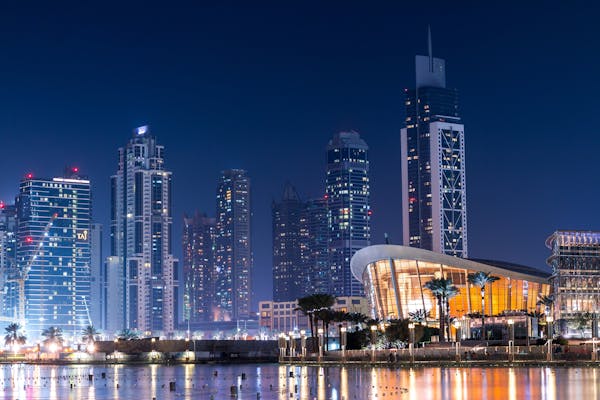
Dubai, a shimmering jewel of the United Arab Emirates (UAE), is known worldwide for its luxurious lifestyle, futuristic skyline, tax-free benefits, and real estate opportunities. With its ever-growing economy and vibrant expat community, buying property in Dubai has become an attractive option for both residents and international investors.
Whether you’re considering a permanent residence, a holiday home, or a profitable investment, this comprehensive Dubai property buying guide will walk you through everything you need to know—from legal frameworks and property types to financing options and best locations.
1. Can Foreigners Buy Property in Dubai?
Yes, foreigners (non-UAE nationals) can legally buy property in designated areas known as freehold zones. These areas allow full ownership of the property and land. Some popular freehold areas include:
- Dubai Marina
- Downtown Dubai
- Business Bay
- Palm Jumeirah
- Jumeirah Village Circle (JVC)
- Dubai Hills Estate
Apart from freehold ownership, there’s also the leasehold option, where ownership is granted for a fixed period (usually 10–99 years).
2. Types of Property Available
Dubai’s property market offers a wide range of options tailored to different budgets and preferences:
a. Apartments
Most common and suitable for first-time buyers or investors. Studio, 1, 2, or 3+ bedroom options are available in towers and high-rises.
b. Villas & Townhouses
Ideal for families, these are available in gated communities and come with private gardens, pools, and parking.
c. Off-Plan Properties
Projects still under development. Often available at lower prices and with payment plans. Popular among investors for capital appreciation.
d. Commercial Properties
Includes offices, retail shops, and warehouses for business use or rental income.
3. Freehold vs Leasehold Areas
Understanding the difference is crucial before making a purchase.
- Freehold: You own the property and the land it sits on outright. You can sell, lease, or rent it freely.
- Leasehold: You lease the property for a set period (up to 99 years). The land is owned by a UAE national or government authority.
Most international buyers opt for freehold properties due to flexibility and long-term ownership benefits.
4. Steps to Buy Property in Dubai
Step 1: Set a Budget
Include purchase price, registration fees, agency commissions, service charges, and potential renovation costs.
Step 2: Choose the Right Location
Dubai has over 50 established neighborhoods. Consider:
- Downtown Dubai – Luxury lifestyle near Burj Khalifa
- Dubai Marina – Waterfront living with nightlife
- JVC & Dubai South – Affordable options for investors
- Mirdif, Al Barsha – Family-friendly with schools nearby
Step 3: Hire a Real Estate Agent
Always deal with a registered agent licensed by RERA (Real Estate Regulatory Agency). A good agent helps with property selection, legal processes, and negotiations.
Step 4: Make an Offer
Once you choose a property, negotiate the price and sign a Memorandum of Understanding (MoU) or Form F, outlining terms.
Step 5: Pay the Deposit
Usually 10% of the property value. This is held in trust or with the seller’s broker until completion.
Step 6: Apply for a No Objection Certificate (NOC)
Required from the developer (like Emaar or Nakheel) to proceed with the transfer of ownership. Any outstanding service charges must be cleared first.
Step 7: Complete the Transfer
Both parties go to the Dubai Land Department (DLD) to officially transfer ownership. Once complete, you receive the title deed.
5. Costs Involved in Buying Property
| Item | Estimated Cost |
|---|---|
| DLD Transfer Fee | 4% of property value |
| DLD Admin Fee | AED 580 – AED 5,000 |
| NOC from Developer | AED 500 – AED 5,000 |
| Agent Commission | 2% of property price (plus 5% VAT) |
| Mortgage Registration Fee | 0.25% of the loan amount + AED 290 |
| Trustee Fee | AED 2,000 – AED 4,000 (depending on price) |
| Service Charges | AED 10–30 per sq. ft. annually (varies) |
6. Financing Options
Foreigners and residents can apply for mortgages from UAE banks if eligible. Key facts:
- Maximum loan-to-value (LTV) for expats: 80% for properties under AED 5 million
- Loan tenure: Up to 25 years
- Interest rates: 3%–5% annually (fixed or variable)
- Documents: Passport, visa, Emirates ID, income proof, bank statements
Tip: Get pre-approved before house hunting to know your budget and increase negotiation power.
7. Off-Plan vs Ready Properties
Off-Plan Properties
- Lower entry price
- Flexible payment plans
- Delayed possession
- May appreciate in value during construction
Ready Properties
- Immediate rental income or use
- Clear ownership
- Higher upfront costs
Investors: Off-plan is ideal for long-term capital gain. Ready properties suit those looking for quick returns.
8. Golden Visa for Property Buyers
Dubai offers a 10-year Golden Visa for property investors, provided:
- The property is worth AED 2 million or more
- It is fully paid (not under mortgage)
- The visa allows the investor to sponsor family members and enjoy long-term residency
9. Benefits of Investing in Dubai Property
- Tax-free income from rent or capital gains
- High rental yields (5%–9% annually depending on location)
- World-class infrastructure and safety
- Political stability and legal transparency
- Fast-growing tourism and business hub
- Availability of short-term rentals (Airbnb-friendly zones)
10. Risks and Considerations
While the Dubai property market is lucrative, keep in mind:
- Price fluctuations due to oversupply in certain areas
- Delays in off-plan project delivery
- Service charges can be high in luxury areas
- Legal disputes (always do due diligence)
Working with reputed developers and RERA-certified agents minimizes risks.
Best Developers in Dubai
- Emaar Properties (Downtown Dubai, Dubai Hills)
- Nakheel (Palm Jumeirah, Jumeirah Islands)
- DAMAC Properties (DAMAC Hills, Akoya Oxygen)
- Sobha Realty (Sobha Hartland)
- Meraas (City Walk, La Mer)
Buying from a reputed developer ensures better quality, project completion, and resale value.
Top Emerging Areas for Investment (2025 and Beyond)
- Dubai South – Close to Al Maktoum Airport & Expo 2020 legacy site
- Meydan – High-end villas and apartments near Downtown
- Jumeirah Village Circle (JVC) – Affordable housing with steady rental demand
- Dubai Creek Harbour – New waterfront development by Emaar
- Al Furjan – Family-friendly community near new metro line
Conclusion
Whether you’re a seasoned investor or a first-time buyer, Dubai’s real estate market presents a world of opportunity. With world-class amenities, tax-free earnings, and long-term residency options, Dubai continues to attract global interest.
Before making a purchase, ensure you research thoroughly, work with licensed professionals, and understand the legal and financial implications. A smart investment in Dubai today can bring lasting returns in one of the world’s most dynamic cities.









